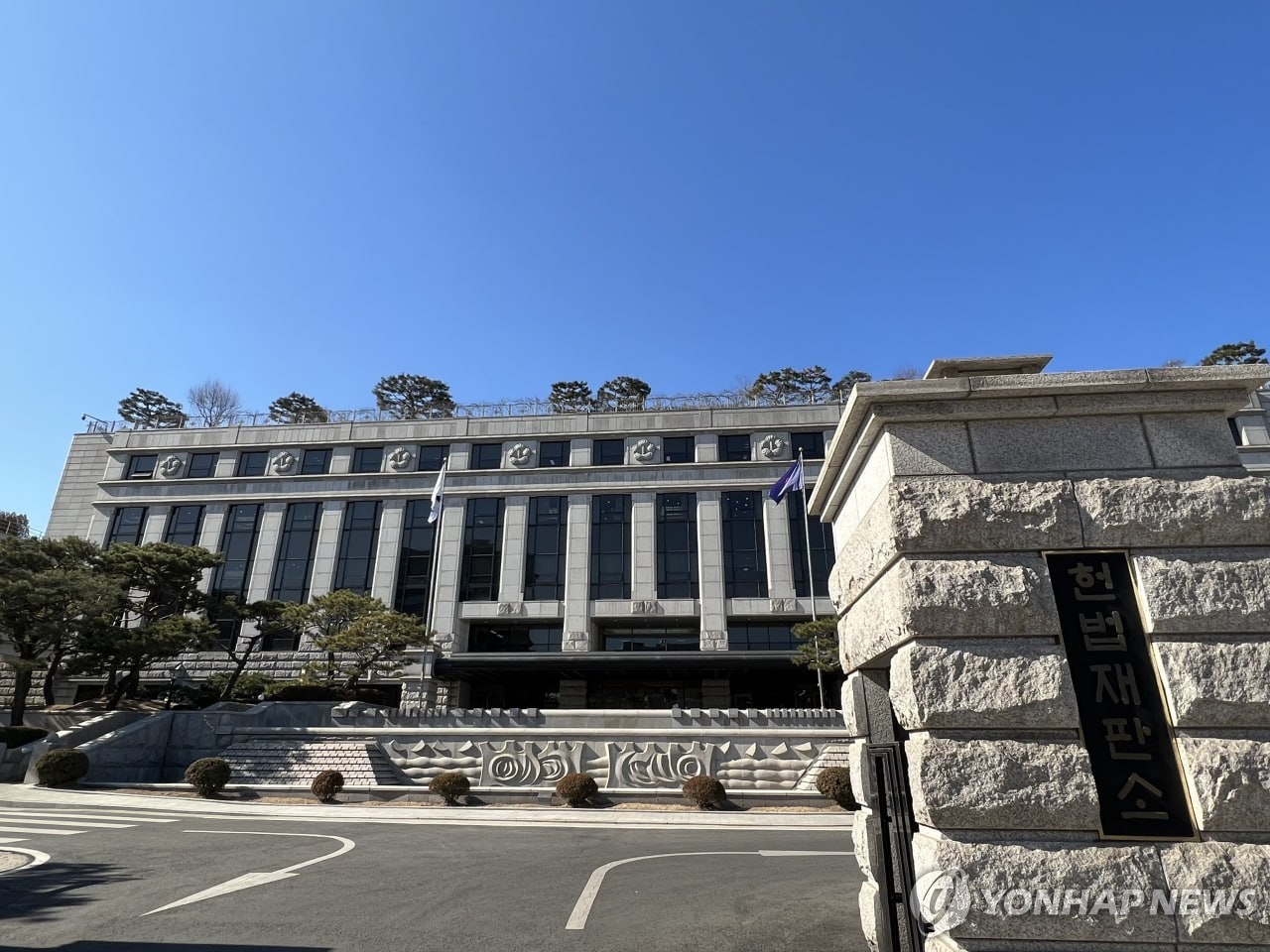 |
South Korea's Constitutional Court in Seoul (Yonhap) |
Keeping foreign nationals subject to deportation in detention centers for long periods of time is incompatible with the Constitution, South Korea’s Constitutional Court ruled Thursday.
The clauses of the current Immigration Control Law that allow the authorities to prolong physical custody of foreign nationals slated for deportation until their departure must be amended to eliminate their unconstitutional elements, the court said in a 6-to-3 majority decision.
"The statutes that impose no restrictions on the length of custody periods for foreign detainees constitute an excessive violation of their right to physical liberty,” the court ruled, calling for their amendment.
Following the decision, which aims to prevent possible confusion from an immediate annulment of the statutes in question, though it recognizes their unconstitutionality, the concerned clauses of the Immigration Control Law will become ineffective after May 31, 2025, if the legislature does not amend the law before then.
The ruling came after a group of plaintiffs asked the top court to review the possible unconstitutionality of the first clause of Immigration Control Law Article 63, which stipulates that if a foreigner subject to a deportation order cannot immediately leave the country, local immigration offices can enforce protective custody of the individual.
Among the plaintiffs was an Egyptian national who entered Korea in 2018 at the age of 17 to seek asylum here. The individual was held in a detention center for a month after their refugee status was denied and was ordered to leave the country.
The nation's human rights watchdog, the National Human Rights Commission of Korea, welcomed the court's ruling, calling on the Justice Ministry swiftly to come up with alternative measures.
NHRCK Chairperson Song Doo-hwan said in a statement, "As the provision does not specify a maximum detention period, concerns have been consistently raised about the serious physical and mental harm that could be inflicted on foreign detainees."
"In 2015, the United Nations Committee on Civil and Political Rights advised the Korean government to use detention as a last resort, which should be carried out for a minimum period of time."
Currently, people of foreign nationality who violate immigration laws and are subject to deportation can be held in custody until their scheduled departure date if they are deemed to pose a flight risk. Some individuals apply for refugee status while they are detained, and in these cases, their detention periods are frequently extended while their applications are being reviewed.







